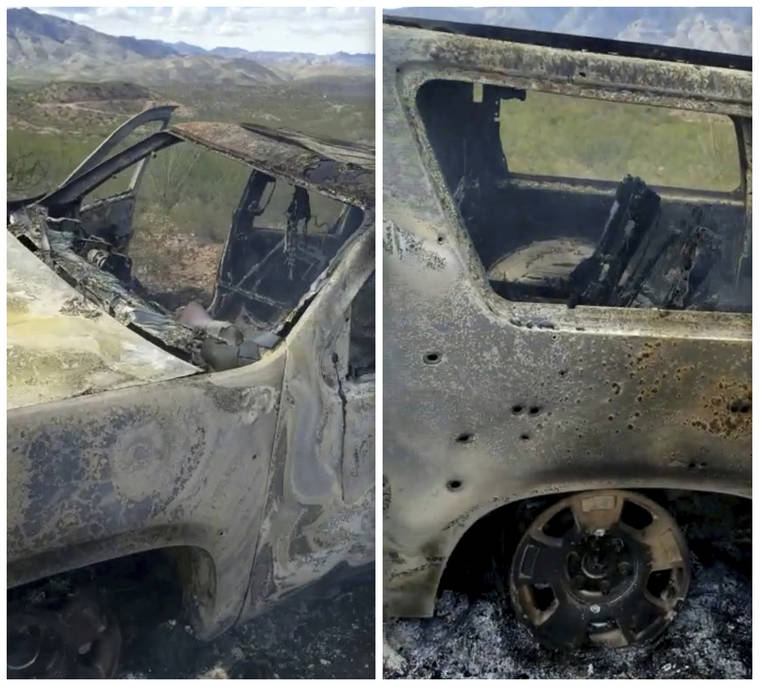MEXICO CITY — The nine women and children killed by drug cartel gunmen in northern Mexico lived in a remote farming community where residents with dual U.S.-Mexican citizenship consider themselves Mormon — and many are descended from former members of The Church of Jesus of Latter-day Saints who fled the U.S. to escape the church’s 19th century ban on polygamy.
La Mora, population less than 1,000, lies in a desert valley ringed by rugged mountains about 70 miles (110 kilometers) south of the border towns of Douglas, Arizona and Agua Prieta in Mexico’s Sonora state.
While many La Mora residents identify as Mormon, they also consider themselves independent from The Church of Jesus Christ of Latter-day Saints, said Cristina Rosetti, a Mormon fundamentalism scholar and expert.
Many of the families living in the area known for growing cotton and grain trace their La Mora origins to the 1950s — and some have much deeper roots.
A La Mora resident who spoke on condition of anonymity said his great grandfather settled there in the late 1890s or early 1900s after leaving the U.S. and was later run back across the border by Mexican revolutionary Pancho Villa.
The great grandfather didn’t return, but the resident’s grandfather moved back to La Mora in the 1950s along with others, said the resident, who feared that he could be targeted by the cartel if he was identified.
Although many La Mora residents believe in mainstream Mormonism tenets, they also believe “they shouldn’t be forming churches, they shouldn’t be organizing under one leader. They should just be Mormon and live their Mormon life. That’s who the people of La Mora are,” Rosetti said.
Some of the families living there still practice polygamy while others stopped generations ago, she said.
The Church of Jesus Christ of Latter-day Saints earlier this year launched a campaign for people to stop using the shorthand church names “Mormon” and “LDS.”
In explaining his decision to for a halt for to nicknames for the faith, church president Russell M. Nelson said the Lord impressed upon him the importance of the full name and that leaving it out was “a major victory for Satan.”
———
This version corrects a word in the 6th paragraph, it is tenets not tenants.


